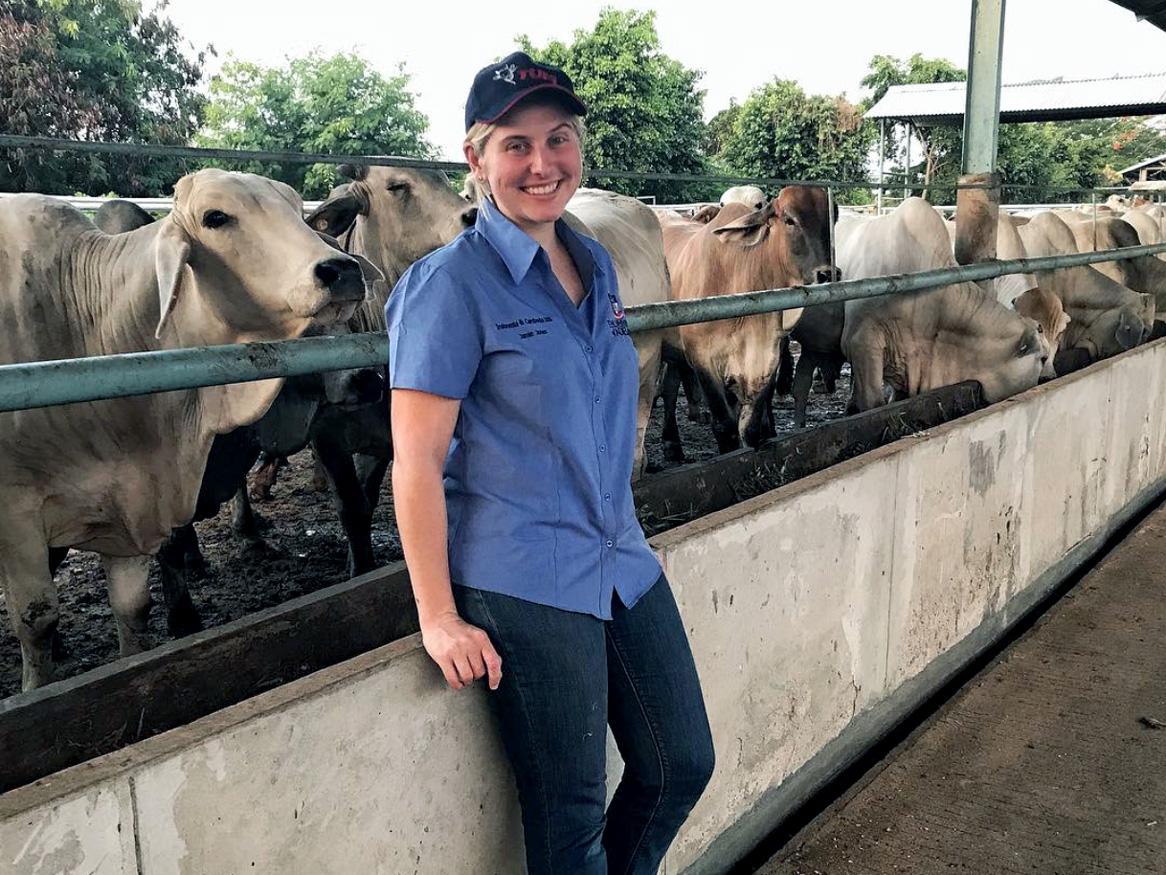Beefing up your degree

Following on from competing in the Intercollegiate Meat Judging Competition and an Indonesian / Cambodia Study Tour, Jamie Jones knew she wanted to work in the meat science field.
The fascination and endless possibilities with the Australian red meat industry became a huge drawcard in Jamie undertaking further study after her Animal Science degree.
In 2014 a trial began in Tasmania using Hereford and Angus sires over Angus dam’s to produce either a purebred Angus calf or a Hereford cross Angus calf, otherwise known as a Black Baldy. Carcase and scanning data was collected over three consecutive years for three cohorts of steers.
In 2019, the data from this study was offered as an honours project. Jamie quickly jumped at the opportunity to closely study the effects of crossbreeding on beef carcasses and how this affects farm profitability. With the Australian beef industry worth in excess of AUS$10billion she understood the importance for Australian producers to be able to adapt to continually changing markets conditions.
The aim of the study was to determine if Hereford cross Angus cattle have heavier carcasses at slaughter than purebred Angus cattle, and also to determine if Hereford cross Angus cattle are more valuable to the producer. Two pricing scenarios were calculated using a pricing scheme:
- that only used lean meat yield; and
- that used both lean meat yield and eating quality.
The key findings for the breed differences were that Hereford sired steers have larger carcass weights, larger eye muscle areas and more P8 fat, whereas the Angus sired steers have more marbling and more rib fat. Value differences favoured the Hereford sired steers in both pricing scenarios, with overall carcass value highly correlated with carcass weight.
While undertaking her honours project, Jamie also volunteered to coach the University of Adelaide’s 2019 ICMJ team.
“Not only was I excited at the opportunity to network with industry leaders again, I wanted to expand the students minds into the study of meat science and multitude of career options that are not otherwise apparent.”
A big part of the ICMJ competition is the careers expo, and even coaches are allowed to attend. Whilst networking at the event, Jamie was introduced to a representative from Hancock Agriculture, the parent company of S Kidman & Co. The two discussed a role that S Kidman & co were currently advertising for, Data Analytical clerk. A resume was sent off the next day and an interview set for two days later. A week after getting back from the ICMJ competition, Jamie had a full time job with one of the biggest agricultural companies in Australia.
A large part of Jamie’s role at S Kidman & Co as data analytical clerk involves data management and reporting for feedlots that the company own or custom feed at. She works very closely with the Kidman finance team, feedlot managers, abattoirs and various other industry personnel.
More recently she had has the opportunity to get involved with the pasture fed side of the business through herd modelling. Jamie enjoys the constant challenges and opportunities that S Kidman & Co have provided her over the last year and is excited to assist the future growth of the business.
Article by Jamie Jones
